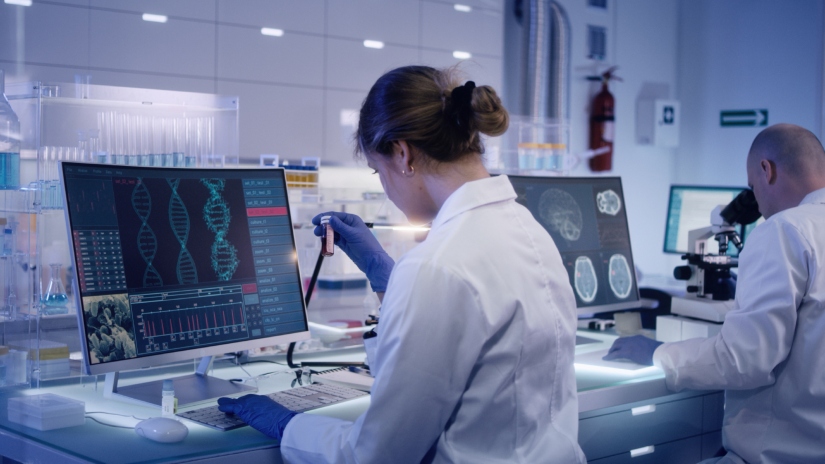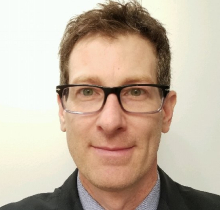By Robert Lynde, Director of Commercial Operations, Molecular Diagnostics (MD), Hitachi High-Tech America, Inc.
Genomics is the study of all of a person's genes. In biology, the complete set of DNA in an organism is called its genome. When researchers published the first “complete” genome at the start of the new millennium, there were high hopes for related breakthroughs in gene research.
The optimism was understandable. The genetic code that determined human traits and disease was thought to have been broken, but it turned out that the challenge was more complex than most imagined and much work was yet to be done. In fact, it was only in the past year that scientists finally developed a fully resolved version of the genome1 and our understanding of genetic variation and the role it plays in disease has changed dramatically since those early days.
Now, thanks to a myriad of technological advances in areas such as long-read DNA sequencing, genome mapping, Big Data, Cloud Computing, Artificial Intelligence and Machine Learning, a future in which doctors, armed with precision therapies and reams of genomic information about their patients, will have the advantage combating a host of deadly diseases feels closer than ever.
Researchers are now able to analyze entire genomes, allowing them to better interpret biological data and gain new insights into the understanding of diseases. What’s more, advancements in our understanding of genomic healthcare have the potential to create better healthcare outcomes for patients, improving quality of life while also reducing treatment costs.
Compared with where researchers were 22 years ago when the Human Genome Project announced the first draft sequence of the human genome, we can do a lot more because of state of the art of technology. So much depends on the data. The more that researchers can parse and extract insight from data, the more progress they can make, whether we're talking about genomics, AI, or any other field.
Consider, for example, the work underway at the UK Biobank2, which arguably is the world’s most advanced genetic database. Started in 2006, the UK Biobank has compiled clinical data on half a million voluntary participants, researching links between genetic predisposition and the development of disease. Since the project began, it’s helped further our understanding of a myriad of diseases - everything from obesity to dementia. More recently, the UK Biobank has begun a whole-genome sequencing3 project that will include data from all 500,000 participants. In time, this will give clinicians an even more complete picture as they investigate links between genetics, lifestyle and the environments that contribute to disease.
To be sure, we’re still in the early innings of this historic transition. But as researchers get to measure every single genetic building block across the whole genome, they’re gathering useful information which otherwise might have gone unnoticed. By running an entire genome analysis, they can view the totality of chromosome changes and draw more detailed maps of a patient’s genetic information.
This process is not yet common practice in clinical labs. Whole genome analysis remains relatively expensive and has been largely reserved for treating patients with rare diseases. But while computing isn’t the only – or even the main driver of costs – the expectation is that as costs come down and computing, in general, gets more powerful, we should expect to see more widespread use of whole genome panels within the next five years. By 2025, it’s projected that over 100 million genomes4 will have been sequenced as part of various genomic projects.

Earlier this summer, I participated in a scientific advisory board meeting, where a board member discussed the amazing work his group was doing to provide doctors with the ability to track the genomic makeup of a patient over time and conduct personalized treatments at different points in the progression of a disease.
Ultimately, it all comes down to putting as much actionable data into the hands of doctors as we can and as quickly as possible.
While we may not yet be able to create a world without cancer, our ability to extract more actionable genomic information puts us nearer than ever to a world where there's no longer the fear of cancer and other deadly diseases. Here’s where the applied combination of better technology and genomics will pave the way for better diagnostics and personalized treatments – and ultimately, more personalized medicine.
In the future, pharmaceutical companies will be better equipped to identify the causes of disease. That is going to pave the way to better treatments as more accurate information can be used for the development of new drugs. Similarly, physicians will be able to use information gleaned from genomic analysis to intervene in different ways at different points in a disease’s timeline. With a patient’s up to date genetic information at their fingertips, they will be able to calibrate their drug treatment approach accordingly. If, for example, a patient suffers a relapse, the doctor can rapidly respond and prescribe a different drug with a higher probability of effectiveness.
At the same time, keep in mind that not everybody responds to drugs in the same way. That’s why there's a big push underway for personalized medicines. So, when new drugs are being developed, we’re now seeing what's called a companion diagnostic where doctors can test patients to better understand whether they're a candidate for the treatment. And if they are a candidate for that drug, this test helps determine the dosage.
Here’s where Hitachi is applying its expertise to invent digital technologies that improve diagnostics by automating, standardizing, and simplifying testing. Consider the work going on at the Molecular Research and Diagnostic division of Hitachi High-Tech, where I work. Our organization has developed a powerful suite of analytical tools that helps analyze the next generation of genomic data.
Hitachi High-Tech’s Human Chromosome Explorer (HCE) helps researchers analyze the genome so they can understand how it changes with disease. HCE presents a chromosomal view of a human genome showing changes in number of chromosomes and a map of structural variants (SV), which are changes in the structure of chromosomes than can be pathogenic. Although it is clear that SVs contribute significantly to human disease, to what extent is largely unknown. SVs have not been well studied because until recently it has been difficult to identify and analyze them.
Here is where HCE’s bioinformatics platform is being used in conjunction with genome mapping technologies to offer researchers a chromosomal view of human genomes and a map of the changes contained within them. This represents a major step forward in understanding the complete genomic picture.
We’ve also licensed HCE to our strategic partner, Nabsys (in which Hitachi High-Tech has made a substantial investment5). Nabsys’ customers use HCE to analyze genomic data that their system generates. The combination of Nabsys’ genomic analyzer and chemistry and HCE provide valuable genomic information that will one day lead to better diagnoses, targeted treatments, and new treatment options.
In the coming years, we hope this will help bring a better quality of life to patients in the form of better diagnoses, better treatments, and more personalized medicine.

Director of Commercial Operations, Molecular Diagnostics (MD), Hitachi High-Tech America, Inc.
Robert has been at the forefront of commercial operations for Hitachi High-Tech America's MD group since 2020, following a successful tenure at Hitachi Solutions. With over 23 years of expertise in genomics and bioinformatics, he has held key positions in marketing, sales, product management, and business development. Robert's passion and dedication to advancing Hitachi's mission of enhancing the quality of life for all citizens is a driving force. Currently, he supports Hitachi's strategic partner, Nabsys, as they commercialize a new platform that promises to democratize genomic analysis globally.